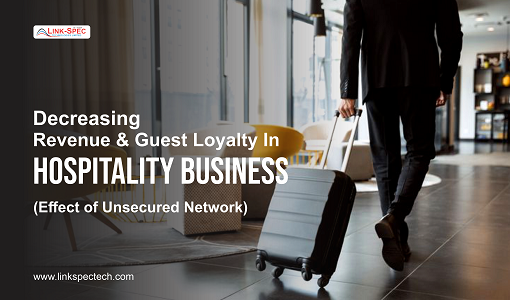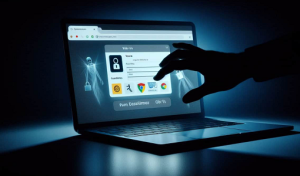Effect of Unsecured Network in a Hotels
Luxury hotels spare no expense in providing state-of-the-art amenities, lavish rooms, and top-notch reception services to ensure their clients have a comfortable stay. However, despite these efforts, some hotels still struggle to retain clients, with some guests checking out prematurely or never returning. One crucial factor that contributes to this phenomenon is often overlooked: network security. In today’s digital age, business travelers rely heavily on the internet to stay productive, and an unsecured network can be a deal-breaker.
The Risks of Unsecured Network
An unsecured hotel network puts guests’ sensitive information at risk of compromise. Hackers can intercept confidential data, including financial information, business documents, and personal details. This can lead to identity theft, financial loss, and reputational damage. As a result, guests may become wary of using the hotel’s internet, which can negatively impact their stay and ultimately lead to them choosing not to return. However, having a network firewall can help.
How a Firewall Works
A firewall is a network security system that monitors and controls incoming and outgoing network traffic based on predetermined security rules. It acts as a barrier between a trusted network and an untrusted network, such as the internet. Here’s how it works:
- Traffic Monitoring: The firewall monitors all incoming and outgoing network traffic, including data packets transmitted over the internet.
- Rule-Based Filtering: The firewall applies predetermined security rules to determine whether to allow or block specific traffic.
- Blocking Malicious Traffic: If the firewall detects malicious traffic or unauthorized access attempts, it blocks the traffic and prevents it from entering the network.
Protecting Hotel Networks and Clients
Implementing a good network firewall can protect hotel networks and clients in several ways:
- Data Protection: Firewalls shield sensitive client data from hackers, preventing interception and theft.
- Network Security: A firewall prevents unauthorized access to the hotel’s network, reducing the risk of malware infections, data breaches, and other cyber threats.
- Client Trust: By providing a secure network, hotels can reassure clients that their data is safe, fostering trust and loyalty.
- Business Continuity: A firewall helps ensure business continuity by preventing cyber attacks that could disrupt network services and impact hotel operations.

The Impact on Client Satisfaction
By implementing a robust firewall solution, hotels can demonstrate their commitment to client security and satisfaction. This can lead to:
- Increased Client Loyalty: Clients are more likely to return to hotels that prioritize their security and safety.
- Positive Word-of-Mouth: Satisfied clients drive positive word-of-mouth and online reviews by enthusiastically recommending the hotel to others.
- Competitive Advantage: Hotels that prioritize network security can differentiate themselves from competitors and establish a reputation for reliability and trustworthiness.
To conclude, a secure network is no longer a luxury, but a necessity for hotels. By implementing a good network firewall, hotels can protect their clients’ sensitive information, prevent cyber threats, and demonstrate their commitment to client satisfaction. This can lead to increased client loyalty, positive word-of-mouth, and a competitive advantage in the market. By prioritizing network security, hotels can ensure that their clients have a comfortable and secure stay, driving repeat business and long-term success.
Get In Touch
For more information about Network Security and Firewall Solution, contact Link-Spec Technologies Limited via: info@linkspectech.com or call: +2348075140464.




